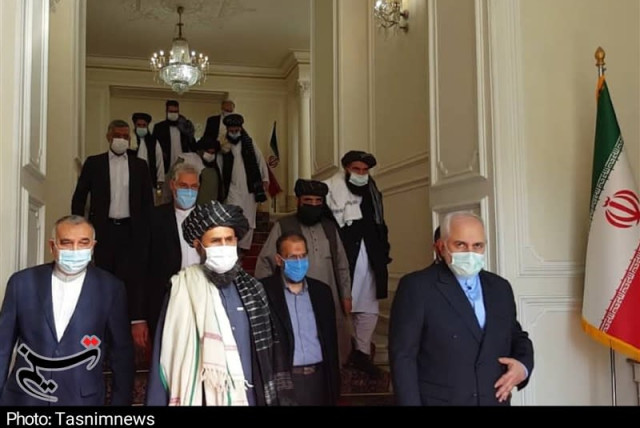Taliban official says discussions on political, economic, transit and refugee issues between the countries are on agenda
The Taliban’s foreign minister visited Iran on Saturday to discuss Afghan refugees and a growing economic crisis, in the first such trip to the neighbouring country since the hard-line Islamists seized power.
Iran, like other countries, has so far not recognised the new government formed by the Taliban after it took power following a chaotic withdrawal by US-led foreign forces in August, with Tehran insisting that the group form an inclusive administration.
“The visit aims at discussions on political, economic, transit and refugee issues between Afghanistan and Iran,” the Taliban foreign ministry spokesman, Abdul Qahar Balkhi, said on Twitter.
Already host to millions of Afghans and fearing a new influx, Iran has sought to sketch a rapprochement with the Taliban, amid criticism by Iranian reformists.
The Taliban delegation led by Foreign Minister Amir Khan Muttaqi has already held a preliminary meeting with Iranian officials, the spokesman said.
Iran, which shares a 900km border with Afghanistan, did not recognise the movement’s rule during its 1996 to 2001 stint in power.
The long border has long defined Iran’s relations with its neighbour and has been the scene of activity by migrants. More importantly, two rivers that flow into Iran from Afghanistan – the Helmand and the Harirud – are of paramount value to Tehran.
“Today, we are basically not at the point of recognising” the Taliban, Iranian foreign ministry spokesman Saeed Khatibzadeh told a news conference earlier this week.
The Taliban has formed an all-male cabinet made up entirely of members of the group, and almost exclusively of ethnic Pashtuns.
READ ALSO: Iran imposes sanctions on more Americans over killing of General Soleimani
It has further restricted women’s rights to work and study, triggering widespread international condemnation.
A source close to the Iranian government told Middle East Eye in December that, before the group took full control of Afghanistan, Tehran had set three conditions to be met to avoid confrontations between the two sides, including that members of the Taliban must not kill their countrymen, they must not kill Shias, and they must not stir up any conflict within 70 kilometres of Iran.
On 1 December, clashes erupted between Iranian troops and Taliban forces near the Afghanistan-Iran border, but these were later described as a “misunderstanding”.
Iranian reformists, who have been critical of Tehran’s diplomatic engagement with the Taliban over the past few years, have criticised the hard-line government’s less than clear plans regarding the group.













